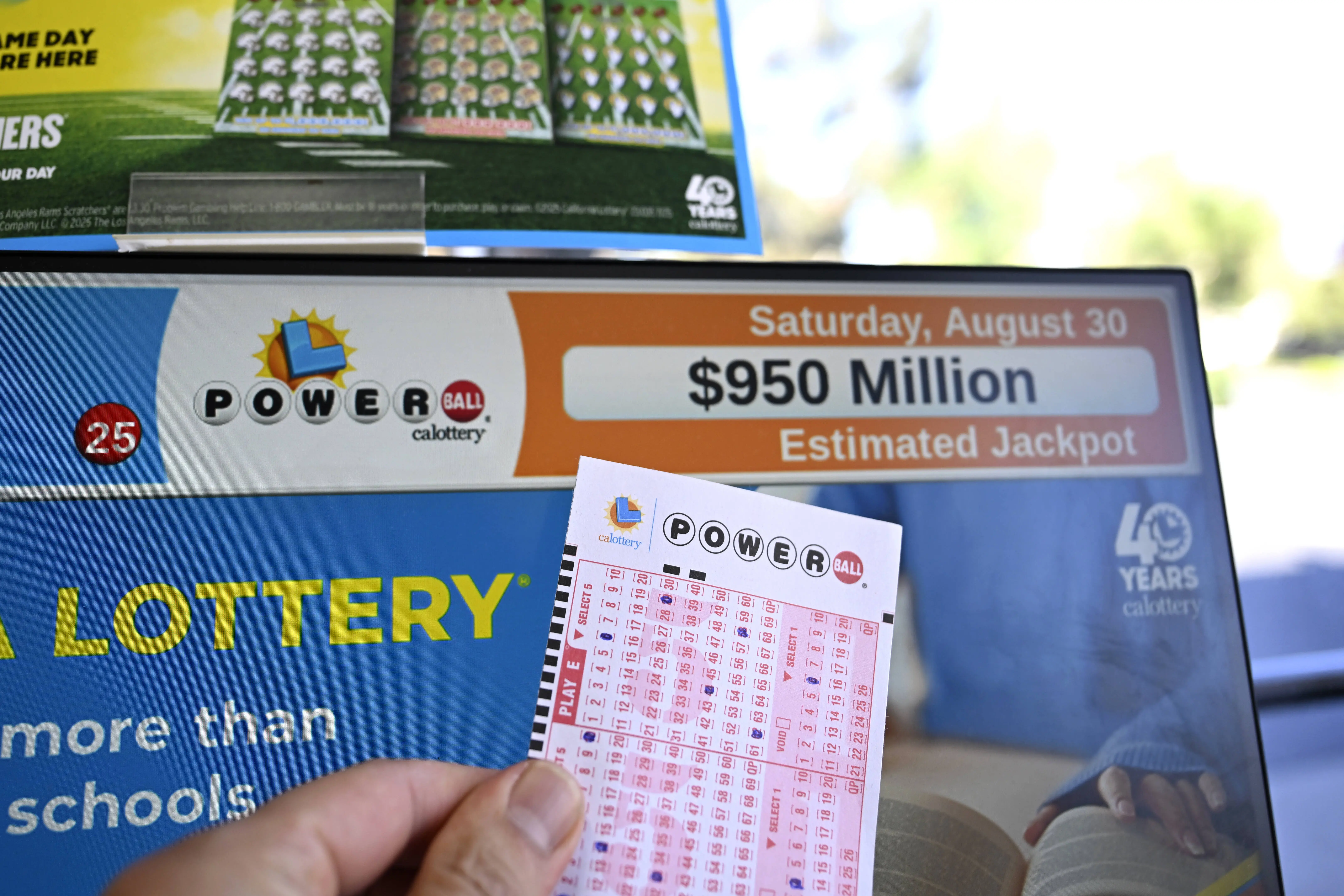If you win the $1.7 billion Powerball jackpot here is how much would be withheld for taxes
-
 CALIFORNIA, UNITED STATES - AUGUST 28: A Powerball lottery ticket and a monitor are seen as U.S. Powerball jackpot grows $950 million, in Foster City, California, United States on August 28, 2025. (Photo by Tayfun Coskun /Anadolu via Getty Images)
CALIFORNIA, UNITED STATES - AUGUST 28: A Powerball lottery ticket and a monitor are seen as U.S. Powerball jackpot grows $950 million, in Foster City, California, United States on August 28, 2025. (Photo by Tayfun Coskun /Anadolu via Getty Images)Most people have imagined what it would be like to win the lottery. The idea of holding a ticket worth billions feels unreal. With the Powerball jackpot now at $1.7 billion, many are talking about it—friends at work, families at home, and people lining up for tickets.
But a big prize also comes with big taxes. The winner will not take home the full $1.7 billion. Federal and state taxes reduce the total before the money is paid. Even so, the amount left is still life-changing.
How much money would actually be withheld?
If you chose the lump-sum cash option instead of annual payments, the jackpot would be valued at about $756.6 million.
From there, the IRS automatically withholds 24 percent in federal taxes. That means roughly $181 million would be taken right away.
Winners also pay federal income tax at the top rate of 37 percent. This means the total federal tax could be close to $280 million. After that, the payout would be around $476 million from the $1.7 billion prize.
Many states also take their own tax on lottery winnings. States such as California and Florida do not tax lottery prizes, but others, like New York, take a large share.
This means the final amount can be different depending on where the ticket was bought.
If you live in a state without income tax, your payout would be closer to the federal estimate. If you live in a state with higher taxes, the amount could be much lower. This is why the winner’s location is important
Even after all these deductions, we’re still talking about hundreds of millions of dollars. It’s far less than the advertised $1.7 billion headline figure, but it’s also more money than most people could ever imagine spending in a lifetime.
Experts say lottery winners often need help managing such a large amount of money. Many choose to pay off debts, make investments, and plan for the future. Even though the prize looks very large, it can reduce quickly without careful planning.
For most people, the lottery is not only about the money but also about the idea of a new life.
The final payout may be much lower than the advertised $1.7 billion, but it is still a very large sum.
As the jackpot grows, more people continue to buy tickets. Each draw brings new interest, with players hoping their numbers will be the winning ones, even after taxes are taken out.
TOPICS: Powerball
- Charlotte woman wins $500,000 in Powerball double play drawing
- Columbia player celebrates big Powerball win while jackpot rises to $1.5 billion for the weekend
- Powerball jackpot hits $1.5 billion after another drawing ends without a winner
- Why 3i/Atlas’ alignment is raising questions: Avi Loeb breaks down the 1 in 40,000 odds